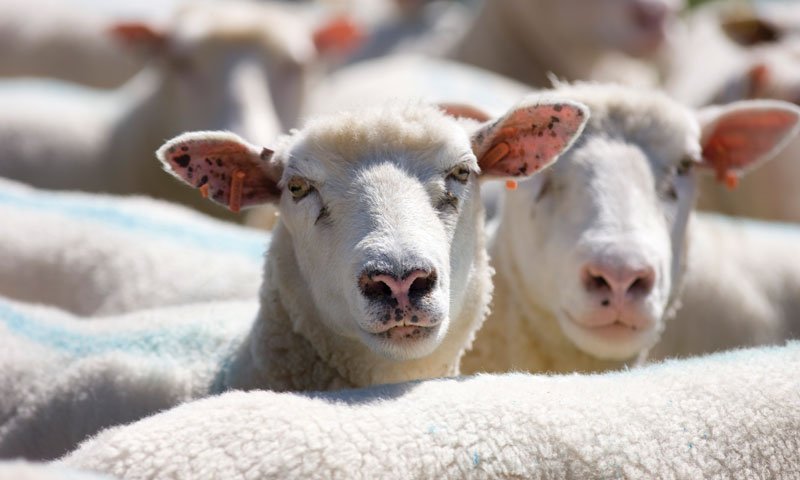News

Large-scale study focuses on fish health and welfare
An £8.5m, large-scale research partnership seeks to improve the welfare and productivity of farmed salmon in Scotland.
In a project led by the Roslin Institute partnered with the UK’s largest salmon farmer Mowi Scotland, experts will seek to understand how to limit the impact of chronic complex diseases, enabling better health and welfare.

Pig studies support ongoing Covid-19 research
Researchers from across the University of Edinburgh and Moredun Research Institute, are collaborating in a study of gene-edited pigs to better understand severe Covid-19, providing insights into disease progression and treatment development.

Genomics study to help retain diversity in UK sheep
Insights into the genetic makeup of UK native sheep breeds can help to preserve their beneficial traits, especially of rarer native breeds, which have fallen to low numbers, a study has shown.
The outcomes could help preserve a diversity of characteristics found in sheep breeds from the UK, including many versatile types of fleece, the ability to seasonally shed, and the hardiness to thrive in harsh environments.

Insights into bone health to aid poultry welfare
Fresh insight into bone health in egg-laying chickens could support their health and welfare, by offering a simple way to assess risk and damage to their vulnerable breastbones, also known as sternum or keel bone.

DNA encoding method aids data-driven genetics research
New approach to representing genetic inheritance could support studies involving large datasets. A new method of encoding and understanding the ancestry of a set of related DNA sequences could support storage and analysis of large genetic datasets.

Science Insights 2024: Inspiring future scientists
The University of Edinburgh’s College of Medicine and Veterinary Medicine has successfully concluded its annual Science Insights outreach programme. This year, the initiative provided school pupils with a unique opportunity to immerse themselves in the world of scientific research and exploration.

Mussel genome map enhances production and resistance
Aquaculture experts at the Roslin Institute have collaborated with industry partner Atlantic Aqua Farms to map the complete set of chromosomes for the blue mussel, an important commercial species in Europe and North America.

Study aims to produce lice-resistant salmon
Scientists aim to identify genes that could make Atlantic salmon resistant to sea lice, parasites that severely affect fish health and welfare, and cost the global aquaculture sector around £800m per year. Researchers aim to pinpoint key genes and associated biological processes underlying genetic resistance to these parasites.

Stem cell approach to aid study of pig infections
A method of producing immune cells from stem cells for research into pig infections is more affordable, practical and ethical than standard approaches, a study led by scientists from the Roslin Institute suggests.

Farm data capture tool will benefit Ugandan pig farmers
Pig farming is one of the fastest growing livestock activities in Uganda and is a means of increasing food, income and employment.
A new initiative aims to increase the productivity and profitability of pig smallholders in Uganda.
The PigBoost tool will help improve decision making of farmers and thus performance and efficacy in managing their herds both for improved genetic merit and reduced disease impacts.
